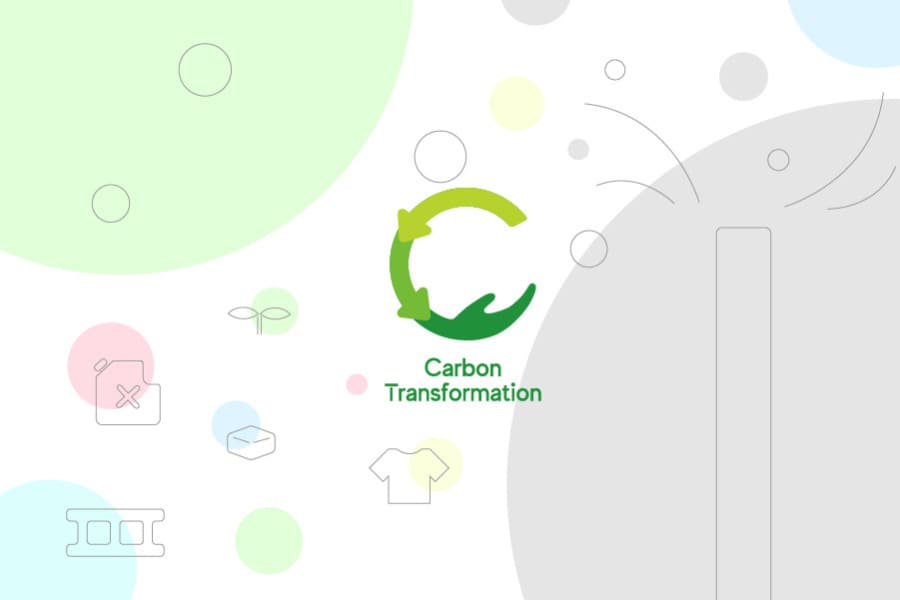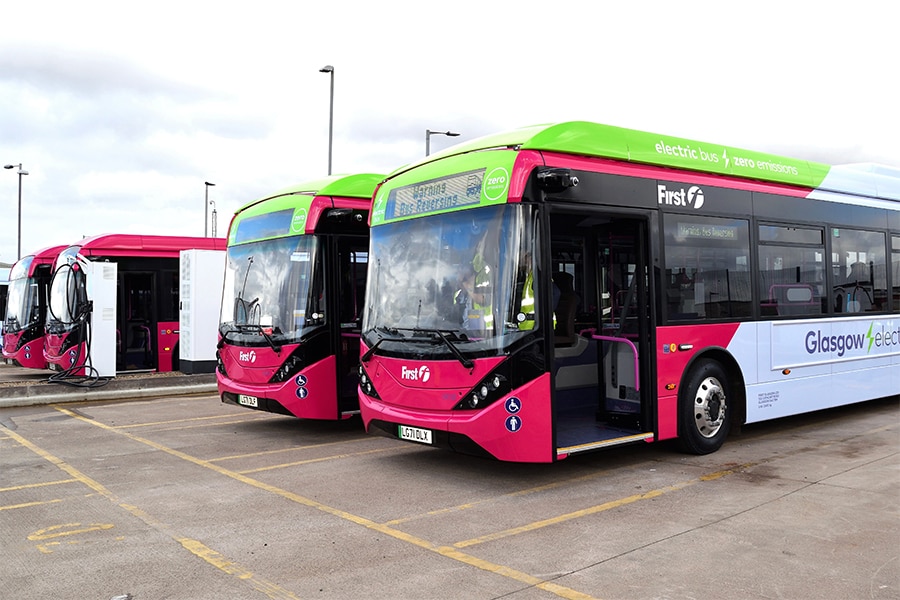A Simple Guide to COP28 and the Global Stocktake
Nov. 15, 2023
Akihiko Nakasaku
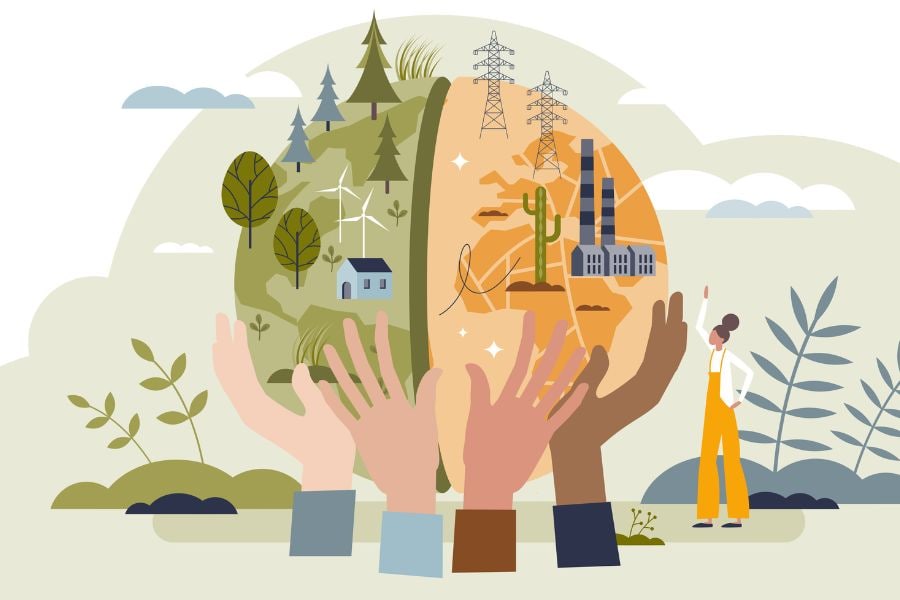
- Table of Contents
COP28 is the 28th Conference of the Parties - the United Nations conference to discuss climate change mitigation. It will be held in Dubai, United Arab Emirates (UAE) from November 30 until December 12, 2023.
Hitachi was a Principal Partner 2 years ago at COP26, when we announced our ambition to be carbon neutral in our own operations by 2030 and across our entire value chain by 2050. At COP28, Hitachi senior representatives will join the discussions to help push forward the agenda and accelerate the decarbonization of our planet.
Alongside the conference, participating countries, regions, and international organizations will set up pavilions to display climate related exhibits for the estimated 70,000 visitors each day. Hitachi will showcase some of the advancements and innovations in the Japan Pavilion, which is being arranged by Japan’s Ministry of the Environment. The technologies will include our electrification of transport and energy systems, and our digital innovations that cut carbon.
What is it about COP that attracts the attention of so many people and organizations from all parts of the globe? This article explains the basics about COP28, including the history of the COP to date, and the topics and agenda for COP28.
What is COP28?
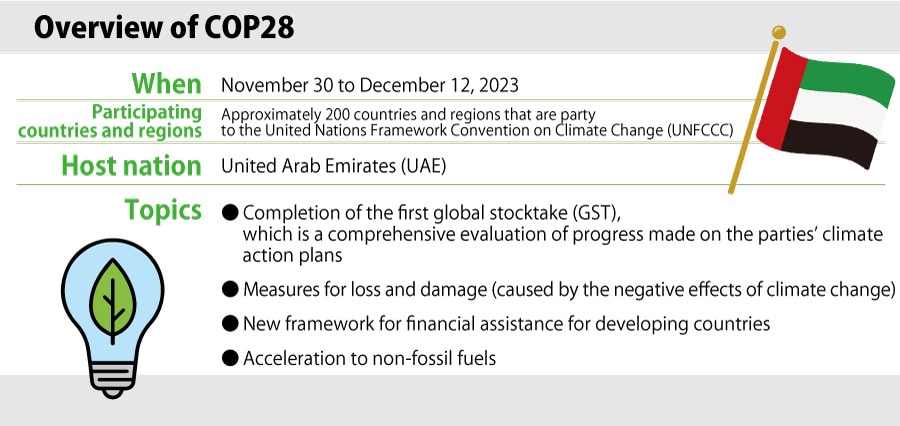
The term “COP,” which we see and hear about in newspapers and on TV, stands for "Conference of the Parties,” meaning a meeting of member states that are party to an agreement.
In this case, the agreement is the United Nations Framework Convention on Climate Change (UNFCCC), which was established in 1992. The ultimate goal of this convention is to stabilize the amount of greenhouse gases in the atmosphere. The purpose of the COP is to establish the international rules needed to accomplish this goal.
History and key points of the COP
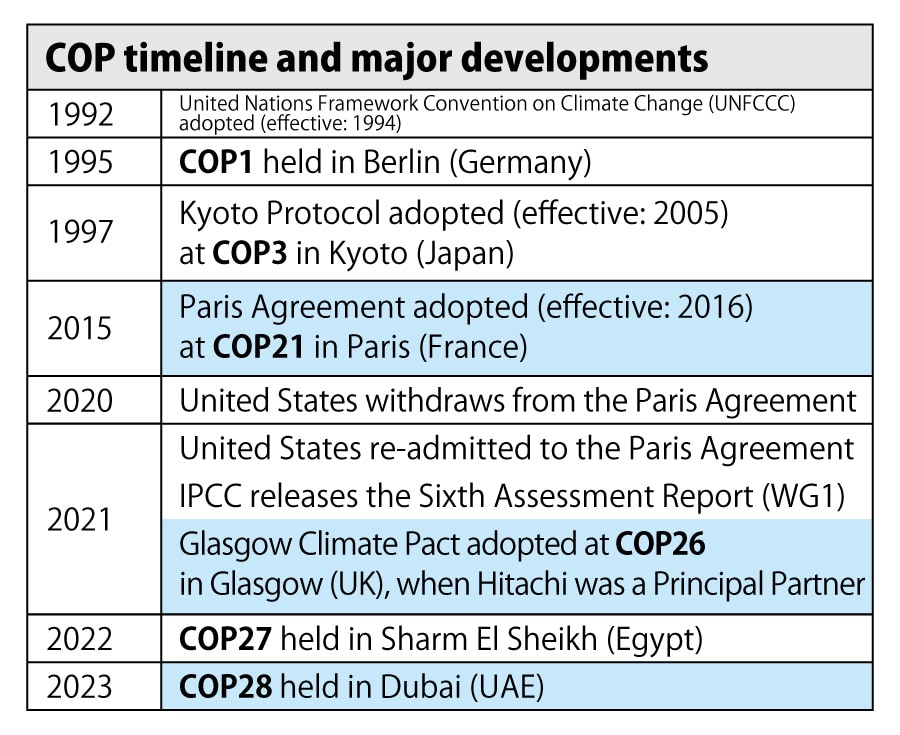
The COP of the UNFCCC has been held almost every year since the first COP (COP1) took place in Berlin, Germany in 1995.
Among the past 27 COPs, COP21 in Paris, France, in 2015, can be considered a milestone.
The Paris Agreement adopted at COP21 set a common long-term global goal to “hold the increase in the global average temperature to well below 2°C above pre-industrial levels and pursue efforts to limit the temperature increase to 1.5°C above pre-industrial levels.”
This goal, in two parts, is referred to as the "2°C target" and the "1.5°C target". In response to this agreement, many governments, especially those of developed countries, announced their intention to become carbon neutral (to reduce greenhouse gas emissions minus removals to zero) by 2050.
Numerous companies are also working to achieve this goal. Hitachi has announced our goals to become carbon neutral in our offices and factories by 2030, and across our entire value chain by 2050. In our business, we are a climate change innovator, and we are helping governments, cities and customers to reach their goals.

In 2021, the Intergovernmental Panel on Climate Change (IPCC), a United Nations organization that conducts scientific assessments of global warming and climate change, released the first instalment of its latest report (the IPCC Sixth Assessment Report). The report states: “The global average temperature has increased by 1.09°C compared to pre-industrial times and there is no doubt that the reason for this increase is the impact of human activities.” With this, the international community was informed that greater efforts are required to reach the Paris Agreement goal.
Furthermore, since COP21, scientists have noted that there is a significant difference in the future of climate change between the 2°C and 1.5°C targets. In response, the “Glasgow Climate Pact” was adopted at COP26 in Glasgow, UK in 2021. This pact clearly states the goal “to pursue efforts to limit the temperature increase to 1.5°C.”
What is the global stocktake?
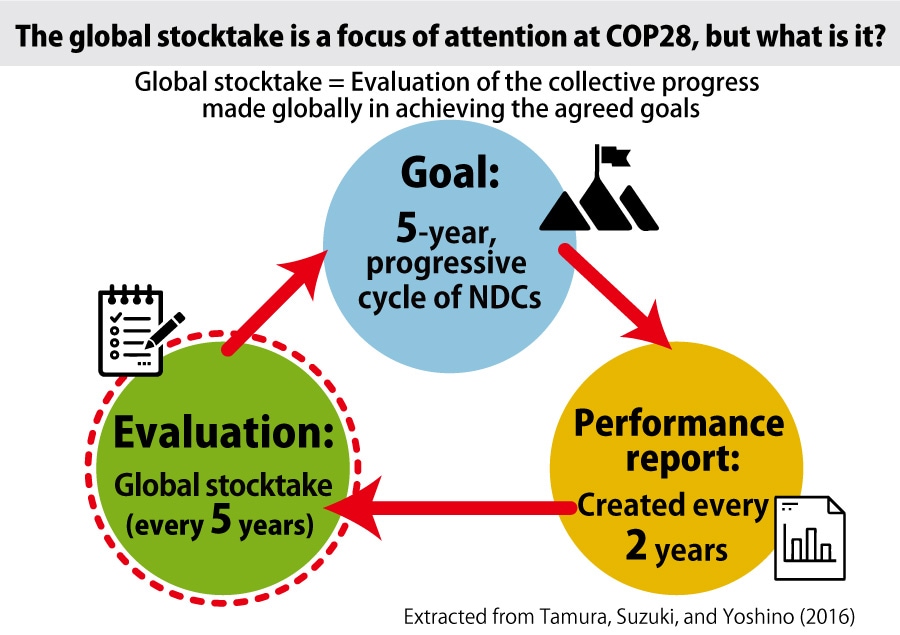
What is the global stocktake? (Source: empowering_underPA.pdf (iges.or.jp))
Each country voluntarily sets its own greenhouse gas reduction targets based on the Paris Agreement as nationally determined contributions (NDCs). However, there is no obligation under international law for countries to achieve their NDCs. Thus, in order to achieve the 1.5°C target, the global stocktake (GST), which is a mechanism used to evaluate the progress of nationally determined contributions (NDCs) worldwide, will be a particular focus of attention at COP28. The GST will be implemented every five years to encourage improvements toward achieving the goal.
The first GST kicked off in November 2021, and the current status of the worldwide effort will be announced at COP28 as a basis for further discussions. The expectation is that a roadmap will be laid out for future actions to strengthen climate change mitigation measures, and all eyes are on COP28 to see what kind of messages will result

